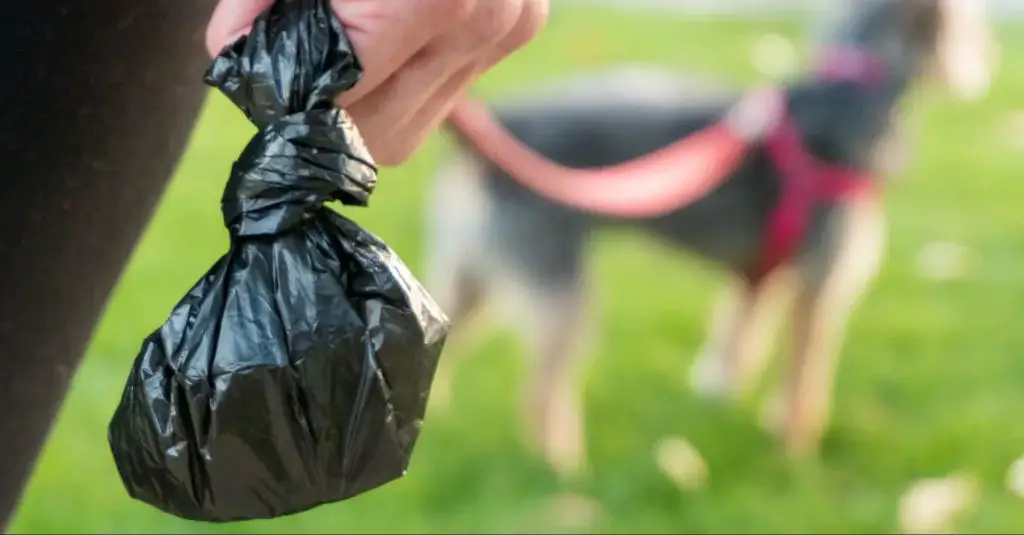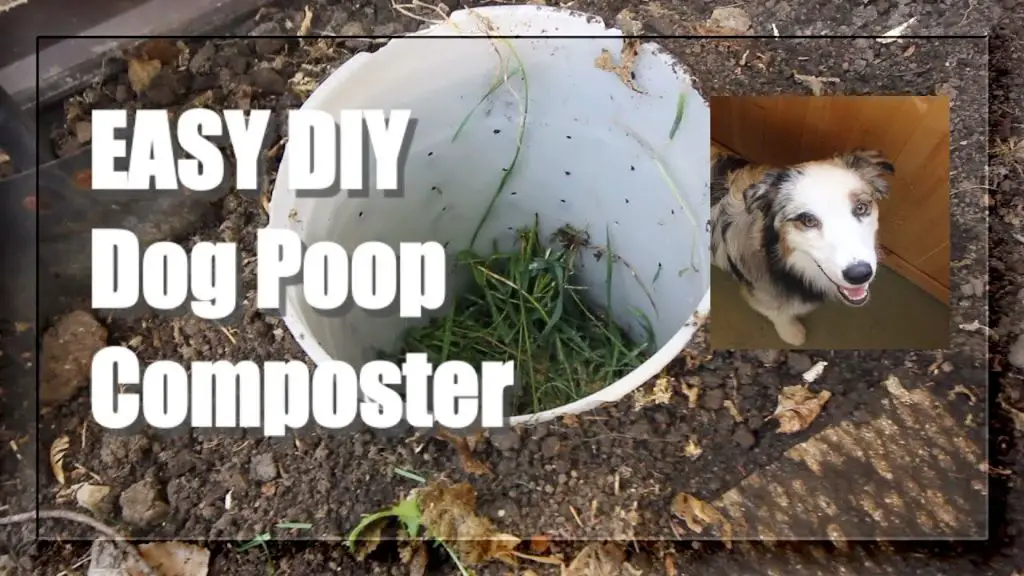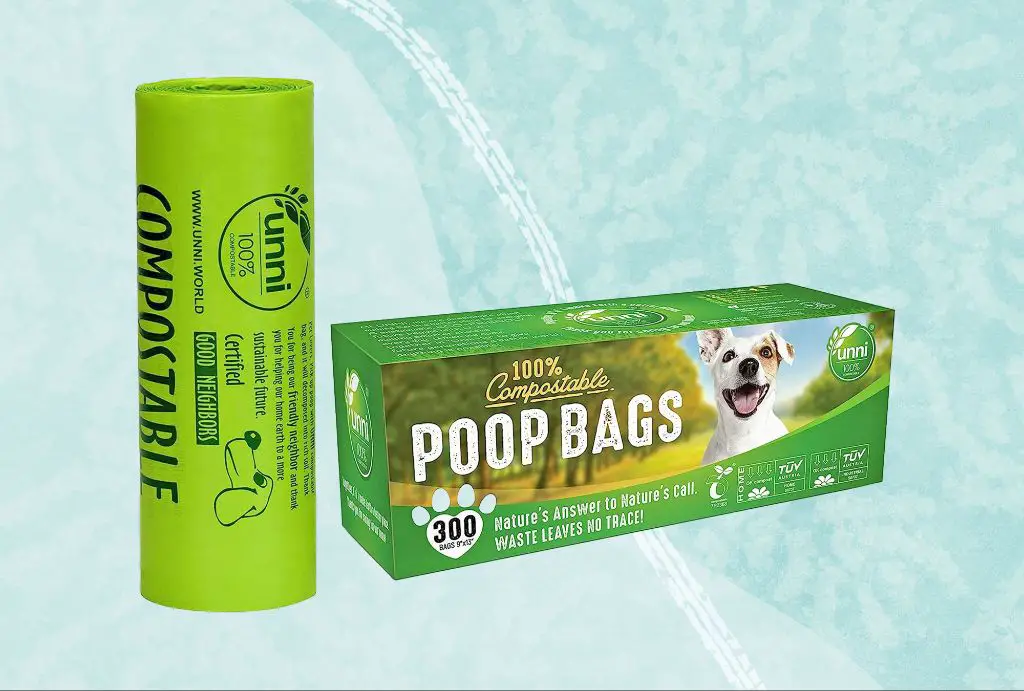Introduction
Responsible disposal of dog waste is extremely important for protecting the environment. Dog feces contains harmful bacteria and parasites that can contaminate soil and water sources. Additionally, dog waste adds excess nutrients like nitrogen and phosphorus to the environment, which can cause algae blooms and negatively impact water quality.
There are several common methods for disposing of dog poop, each with varying impacts on the environment. Simply leaving dog waste on the ground is never a good option, as rain can wash the pathogens and nutrients into storm drains and waterways. Throwing it in the trash adds more waste to landfills but contains the waste. Flushing dog poop down the toilet transfers the waste to wastewater treatment plants. Burying dog waste decomposes it, but excess nutrients may still leach into groundwater. Composting dog waste at home requires proper technique to destroy pathogens. Understanding the environmental tradeoffs of each disposal method is key to choosing the most eco-friendly option.
Leaving it
Leaving dog waste on the ground, even in your own yard or when hiking on trails, can pose serious health and environmental risks. As it decomposes, dog waste releases harmful bacteria and parasites such as E. coli, Giardia, Salmonella, roundworms, hookworms, and whipworms. These can be picked up by other dogs who come into contact with the waste, and can cause veterinary issues like diarrhea or vomiting. There’s also a risk to young children who play outside and may accidentally touch waste.
Dog feces contains nutrients like nitrogen and phosphorus from the food the dog eats. When it’s left on the ground, these nutrients get washed into storm drains and waterways with rain and snow melt. This runoff fertilizes algae blooms and promotes weed growth in lakes, ponds, rivers, and streams. As algae die off, they deplete oxygen levels in the water which harms fish and other aquatic life. No one wants to swim, boat, or fish in green, smelly water choked with algae and weeds.
In watershed areas that provide drinking water, dog waste and other pet waste can contaminate drinking water sources leading to health risks and expensive treatment processes. In some communities, pet waste makes up nearly 30% of bacterial contamination in watersheds. Clearly, leaving it is not a responsible choice.
Throwing it in the Trash
This is the most common method that dog owners use to dispose of dog waste. It involves simply picking up the poop, sealing it in a plastic bag, and throwing it in the garbage. This is an easy and convenient option, especially when out on walks. However, there are some downsides to this method.
Landfills are already overflowing with plastic bags and other non-biodegradable waste. Dog poop sealed in plastic bags will sit in a landfill for many years without decomposing, taking up valuable space. The plastic bags are also not great for the environment. Even biodegradable bags require specific conditions to break down that are not usually found in landfills.

Dog waste can also contribute to pollution. As it slowly decomposes in a landfill, it releases methane, a potent greenhouse gas. Nutrients like nitrogen and phosphorus can also leach into groundwater or streams. So while throwing it in the trash removes it from sight, it doesn’t actually make it go away. There are more eco-friendly disposal options.
Flushing it
Flushing dog poop down the toilet is not recommended as a method of disposal. This can present hazards to water treatment systems and contribute to environmental pollution. When feces from dogs or other animals are flushed, it introduces harmful bacteria, nutrients, and solids into the wastewater flow.
Wastewater treatment plants are not specifically equipped to remove dog waste, so the pollutants can pass directly into waterways. This can lead to algae overgrowth and depletion of oxygen levels from excess nutrients. Bacteria and parasites from dog feces, such as E. coli, Giardia, and Cryptosporidium, also pose risks to human health if they enter water supplies.
Many municipalities advise against flushing pet waste for these reasons. Some states even have laws prohibiting disposing of dog feces in storm drains or waterways because of the environmental damage it can cause. The best practice is to avoid flushing dog waste and use more eco-friendly disposal methods.
Burying it
Burying dog waste can work but has some drawbacks. While burying dog poop under at least 5 inches of soil can decompose it over time, there is still potential for excess nutrients like nitrogen and phosphorus to seep into groundwater if buried inappropriately. This can contaminate water sources. Digging holes and burying dog waste also disturbs the soil, which can be bad for plant roots and earthworms. Additionally, some parasites like roundworm eggs can survive being buried and contaminate soils for years. So while burying dog waste is better than leaving it, it’s not the most environmentally friendly disposal method.
Composting It
Composting dog waste can be an eco-friendly disposal method, but does require some precautions. The high nutrient content in dog feces can make it a useful addition to a compost pile. However, dog waste may also contain harmful pathogens that can survive the composting process. Here’s what to consider when composting dog waste:

Pros:
- Recycles nutrients back into the soil
- Avoids sending waste to landfills
- Can kill some pathogens and weed seeds during hot composting
Cons:
- Risk of spreading diseases like e. coli
- May attract unwanted pests to the compost pile
- Can produce unpleasant odors
To safely compost dog waste:
- Choose a hot composting method to heat waste to at least 140°F
- Bury the waste in the center of the pile
- Don’t use the compost on edible plants
- Wait 1-2 years before using finished compost
Overall, composting dog waste takes some extra care but can be a green option for eco-friendly pet owners. Monitoring temperatures and avoiding contact with edible gardens are key precautions when composting dog poop.
Dog waste disposal services
More and more communities now offer professional dog waste pickup and disposal services. These services will come to your home on a regular schedule and collect your dog’s waste, disposing of it properly. This is one of the most environmentally friendly options since the waste is handled and disposed of using best practices.
The companies providing these services are experts in proper dog waste disposal. They will collect the waste from your property and take it to a facility for disposal. Here the waste can be safely processed without any contamination to water or soil. Some facilities compost dog waste, others incinerate it, but in all cases measures are taken to minimize environmental impact. This also keeps your own property free of any waste buildup.

The convenience of scheduled pickup also encourages proper disposal. Rather than leaving waste or trying to find ways to get rid of it yourself, you always have the pickup service to handle it promptly and professionally. Just be sure to choose a reputable service that provides details on their practices. This ensures your dog’s waste is disposed of in the most eco-friendly manner.
Dog waste digesters
Specialized dog waste digestion products provide an effective and environmentally friendly way to quickly break down and dispose of dog feces. These products contain live enzymes, microbes, and bacteria that activate when they come into contact with the dog waste to rapidly decompose the organic matter.
Dog waste digesters are very effective when used as directed. The active ingredients immediately begin acting on the proteins, fats, and other compounds in dog waste to dissolve the solids and neutralize odors. This makes the waste easier and safer to handle for disposal. Within as little as 24 hours, the dog waste can be broken down to a liquid solution that can be flushed or poured safely down drains and toilets.
The microbes in dog waste digesters are all natural and non-toxic. When used properly, they pose no risk to pets, plants or the environment. The quick breakdown of waste also helps control germs and reduce fecal contamination in areas frequented by dogs.
Dog waste digesters provide a convenient alternative to other disposal methods. They save time, require minimal effort, and prevent the accumulation of dog waste in yards, parks and walking trails.
Choosing dog waste bags
When choosing dog waste bags, you’ll need to decide between biodegradable and non-biodegradable options. There are pros and cons to each type of bag.
Biodegradable bags are designed to break down through natural processes like sunlight, moisture, and microbial activity. They are often made from plant-based materials like cornstarch. The main benefit of biodegradable bags is that they have less environmental impact if the bag happens to make it into the environment instead of a landfill. However, biodegradable bags need specific conditions to fully decompose, so they may not degrade properly when simply thrown in the trash. They also tend to be more expensive than standard plastic bags.
Standard plastic bags (like grocery bags) are non-biodegradable. This means they will persist in landfills for centuries without breaking down. However, they are readily available and cost-effective. One way to make standard plastic bags more eco-friendly is to reuse them as many times as possible before disposing of them properly.

There are also eco-friendly bags made from recycled materials or more sustainable resources like jute, hemp, or cotton. These provide an advantage over single-use plastics, but may not be as convenient or affordable.
When choosing dog waste bags, consider how you will dispose of them. Biodegradable bags are ideal if you will use backyard composting. Standard plastic bags work for sending waste to a landfill as long as they are tied up securely. And reusable bags are great if you have access to dog waste receptacles while out on walks.
Conclusion
When it comes to the most environmentally friendly ways to dispose of dog poop, some clear options emerge. Composting dog waste, using dog waste digesters, or contracting professional dog waste disposal services are the most eco-friendly choices. These methods ensure the waste is properly processed and sanitized before being recycled back into the environment.
Responsible dog waste disposal is important for keeping our public spaces clean and our watersheds healthy. Pathogens and excess nutrients from dog feces can contaminate waterways and spread disease if not disposed of properly. By choosing sustainable disposal methods, dog owners can do their part to keep the environment safe for everyone.